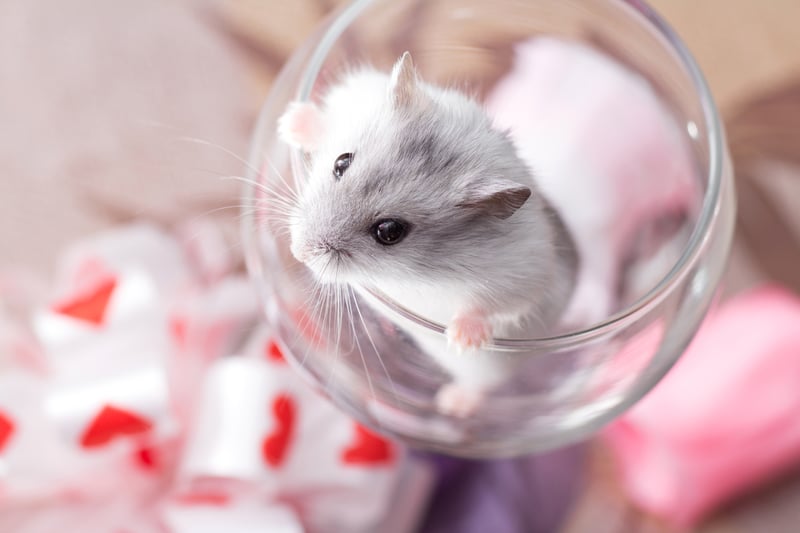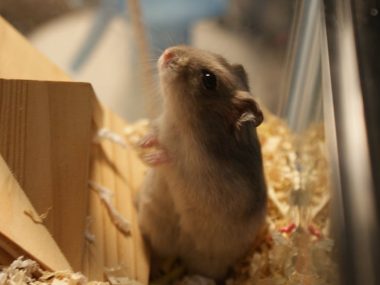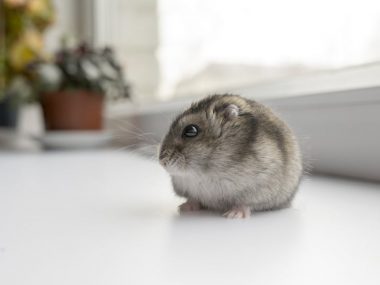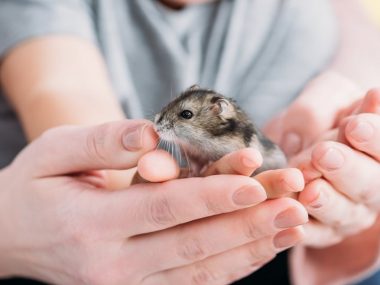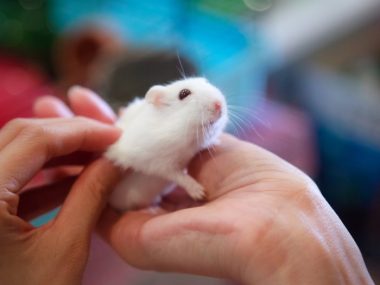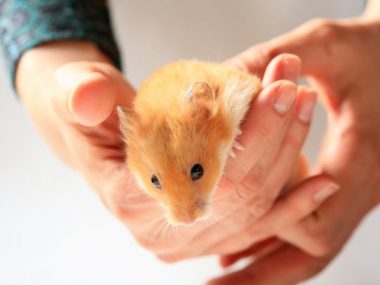Getting a new pet can be exciting, but how do you choose which one? Hamsters are often thought of as good starter pets for kids, but that is one of the worst reasons to get one. There are several reasons why hamsters aren’t good pets for small children, but they can be excellent pets for older kids or adults with limited space.
We love hamsters and would never change anything about them, but they do have some downsides that prospective owners should be aware of before bringing one home. There is much more to caring for a hamster than just buying a cage and giving it food.
Table of Contents
Should I Get A Hamster As A Pet?
Hamsters can be excellent pets if you know what you are letting yourself in for. Although they are tiny, they will still require regular veterinary care, and you need to ensure that every aspect of their environment is always clean and comfortable.
While they are undoubtedly less demanding than a dog or cat, hamsters have plenty of specialized needs. Did you know that hamsters need to burrow in deep bedding? Did you realize that they can be prone to skin conditions or die of stress?
These are all things that potential owners need to think about before taking the leap and buying a hamster. In fact, not all hamsters are the same, and they can vary quite a lot in terms of the breed. For example, a Chinese dwarf hamster may be far jumpier and more skittish than a Syrian hamster.
So before you decide to bring home a new, teeny-tiny, super cute family member, let’s check out a list of pros and cons. Pets are a commitment for their entire lifespan, so ensure that welcoming your new pet is a family decision.
What Are The Pros Of Having A Hamster?
There are loads of things to love about hamsters. A lot of their appeal for potential pet owners is that they are super cute. Their faces are soft and fluffy, and their big shiny eyes and tiny ears make them utterly adorable.
We have come up with 12 reasons why hamsters are excellent pets:
1. Hamsters Stay Small
Adult hamsters are just as cute as youngsters. An older hammie may slow down as it ages, but it will still be adorably cute. Unless you get a baby hamster, the size you get is the size it will be – you won’t suddenly find yourself needing to feed a giant animal.
2. They Are Solitary Animals
Put away any guilt feelings you may have about only being able to keep one pet. Although they need plenty of stimulation to prevent boredom, hamsters prefer being an only pet. That also means you won’t get any batches of surprise baby hamsters.
3. Hamsters Can Bond With Their Owner
You may have heard that hamsters are standoffish loners, but not if you do the groundwork while taming your hamster and providing it with a comfortable environment. Committed hamster owners will be rewarded with a very excited little rodent that looks forward to spending time with you.
4. Hamsters Are Entertaining
Hamsters are naturally curious little animals and love to explore. They can’t see very well, so they move around, sniffing and touching new objects with their sensitive whiskers.
With the proper setup, having a hamster can be an excellent source of entertainment – especially in the evening when they become active. Having a low-fuss pet to interact with can be very rewarding.
5. Hamsters Won’t Miss You During The Day
Having a pet and a full-time daytime job can be challenging. Hamsters are excellent pets for anyone who works long hours during the day.
Since these small rodents sleep most of the day, they will just be starting their day and ready to play when you get home. Your hamster will be happy to see you at the end of each long workday.
6. Hamsters Are Quiet Pets
Your neighbors will never complain about a pet barking or yelping while you are out if you have a hamster. Hamsters are rodents that have evolved as prey animals, so unless you have a squeaky hamster wheel, your little pal will pitter-patter exploring its environment noiselessly.
7. You Don’t Need Much Space To Keep A Hamster
Although your hamster will appreciate a large cage, especially one that is multilevel and has added tunnels, you don’t need a large home and a big yard to keep one. While the rule for hamster cages is ‘bigger is better,’ you won’t need to dedicate an entire room to your pet.
8. You Don’t Have To Take Your Hamster For Walks
Although walking your dog can be enjoyable, hamsters prefer a low-key lifestyle. In fact, although there are special hamster leashes and plastic exercise balls for hamsters, they are more likely to injure your small pet than do it any good.
Hamsters are a good choice for anyone who wants a pet, doesn’t want to, or has limited mobility to move around outside.
9. Hamsters Are Clean Animals
There is a common misconception that hamsters smell bad. It is not the hamster that reeks, but rather dirty cages that may have an unpleasant odor. Chances are good that if a hamster cage is smelly, the inhabitant is just as uncomfortable with the terrible smell as the humans.
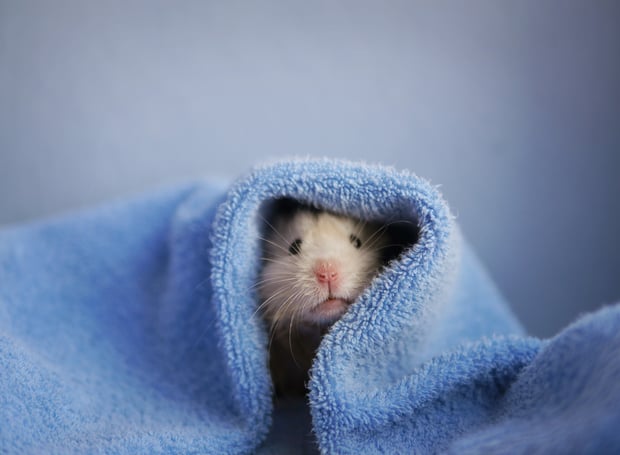
If a hamster is provided with enough of the correct type of food and drinking water, the cage is kept clean, and it isn’t sick, hamsters won’t have an overwhelming odor. In fact, they spend a lot of their time grooming, and a lack of grooming is a sign that your hamster could be sick.
10. You Never Have To Bath Your Hamster
Hamsters should never be bathed in water. These tiny rodents come from desert regions and prefer taking sand baths. Dipping your hamster in water may even be dangerous to its health.
11. Hamster Toys Can Be Inexpensive
Your hamster will joyfully receive cardboard tubes from paper towels or toilet rolls with all the delight of a child at Christmas. There are plenty of hamster-safe items that you can clean and upcycle to add environmental enrichment to your hamster’s cage.
Building a homemade hamster maze is also a lot of fun. Add treats and rewards, and change the design occasionally, and you won’t have to buy a lot of special toys for your hamster.
12. Hamsters Don’t Have Long Tails
Yes, we have put this on the list of hamster pros because many people who may love a pet rat would be freaked out by their long tails. However, rats and hamsters are very different pets – rats can be taught tricks and are more robust than hamsters.
What Are The Cons Of Getting A Hamster?
With all those pros, you may be thinking that having a hamster as a pet would be perfect! However, before you make your decision, there are also some other points that you need to consider.
We have created this list of 10 things you should consider before buying a hamster.
1. Hamster Setup and Maintenance Can Be Costly
Hamsters don’t need as much space as many other pets, but they do need a comfortable, clean, safe setup, and that will require:
- Initial outlay: for main items like the safe cage, water dispenser, food bowls, hamster wheel
- Continuing maintenance outlay: for items like bedding, toys, snacks, toys, sand bath, cleaning materials, environmental stimulation
- Unforeseen costs: Like all pets, hamsters will require medical attention occasionally.
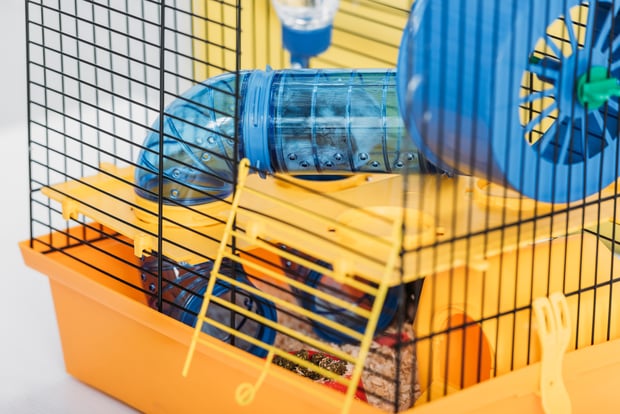
2. Fresh Food Needs To Be Provided Daily
Like any other large pet, a hamster will need daily attention to stay healthy. Although its staple food should always be a good quality hamster pellet, fresh food like fruit and vegetables should be added.
Hamsters should never be left for days or weekends while their owners are away. Like other pets, they should be tended to daily, so if you want to get a hamster, ensure you have someone who can check in on it if you are away.
3. Hamsters Are Nocturnal
This is only a negative point if you would prefer a pet that is awake when you are. Hamsters sleep during the day and may become cranky and upset if you wake them up during their naptimes to play.
Hamsters are fun and love exploring, but they only start waking up when the sun is setting. This is another reason why hamsters are not the best choice as pets for young children.
If you share a room with a hamster, you will hear it moving about and exploring in the early hours of the morning. Hamsters also enjoy running on a hamster wheel at night, which can be disturbing if you are trying to sleep.
4. Hamsters Are Fragile And Easily Stressed
One of the leading causes of premature hamster death is stress. While a barking dog or blaring television may not seem too loud for you, these tiny animals can literally die of panic.
In addition, hamsters are tiny, so being held a little bit too tightly or falling off a table or bed can be extremely dangerous. Hamsters need to be handled gently yet confidently at all times.
5. You Can’t Show Your Hamster Off
Hamsters are reclusive and prefer being undercover pets. Although they love exploring quietly in a safe environment, they are not ideal pets to take outside and show off to your friends. The experience can be a little overwhelming for shy hamsters.
6. Hamsters Have A Short Life Span
It can be heartbreaking to lose a beloved pet, and hamster owners need to prepare themselves for the inevitable goodbye a little sooner than many other pets. No matter how well they are cared for, these adorable munchkins may only live for 1.5 to 2 years.
7. Hamsters Cant Learn Tricks
A hamster is not a good choice if you want a pet that can learn tricks. Hamsters love interacting with their owner and exploring new toys or running through tunnels, but that’s it. Rats are a better choice for patient pet owners who would like to train their pet rodents to do tricks.
8. Hamsters May Escape
It sounds like a horror story, but hamsters have an uncanny way of escaping. That is why having a secure cage setup is essential.
Since they are small and probably won’t react if you call them, finding your beloved pet hamster missing can be frightening. Unless you are careful, hamsters may also scurry under furniture or behind appliances while you are playing with them.
9. Hamsters May Bite If They Are Frightened
Since hamsters have evolved as prey animals that can’t see very well, they are inclined to bite as their first line of defense. Fortunately, this usually only happens when they are scared, and there are ways to prevent the behavior, but they are more bitey than some other small pets like guinea pigs.
10. Other Pets And Hamsters Do Not Mix
While it is possible to keep other pets and have a hamster, they should never be kept together or anywhere the hamster could get stressed out. Rabbits, guinea pigs, and rats are entirely different species and must never be placed in the same cage as a hamster.
Even the best-behaved cats and dogs would be tempted to investigate a hamster cage. Even if your hamster didn’t die from stress, the bigger pets could tip the cage, and the results would be fatal for your little pet.
The Verdict? You Decide!
Hamsters are excellent pets…for some people. They are not suitable for all households and do best with teenage or adult owners. These tiny rodents are cute, entertaining, and very rewarding, but they are extremely sensitive to their environment and must always be handled with care.
